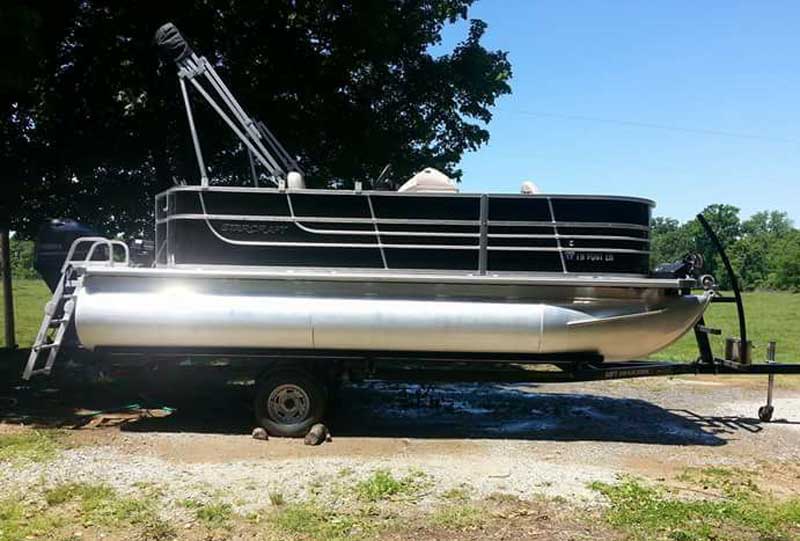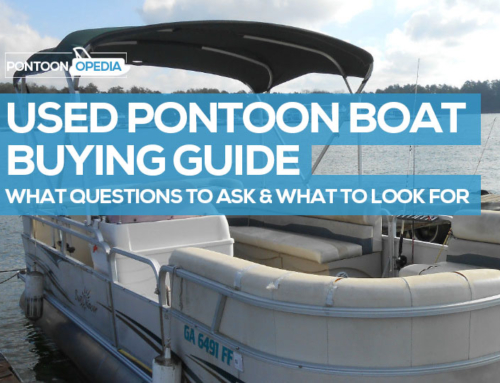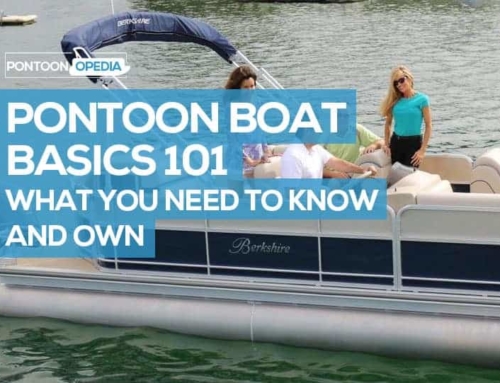(Image credit unknown, found shared on Facebook.)
Understanding how much your 18-foot pontoon boat weighs once combing with a trailer is an essential thing to know. It could be that you are planning on transporting your boat from one location to another or are considering buying one new or used.
It boils down to knowing whether your truck or vehicle will be able to tow it once trailered – will you have enough towing power?
So, what is the weight of an 18-foot pontoon boat on a trailer?
There is no absolutely correct answer to the question, because there are a number of variables at play. I will take you through those below, and then towards the bottom of this article I will out some examples of how much a trailered 18-foot pontoon boat weighs.
Handy Hint: Scroll down to see some example weights using popular pontoon models.
Dry Weight
Dry weight is how much your boat will weigh when it doesn’t have passenger, equipment, gas in the tank, or anything else inside of it. When you buy a new pontoon the manufacturer specification will list a dry weight number.
To find out the exact dry weight of your 18-foot pontoon boat you will need to refer to the manufacturer website or look at the examples I list below.
Trailer Weight
The average pontoon boat trailer weighs approximately 1,200 pounds.
This will again depend on the brand and model of your trailer. If in doubt refer to the manufacturer website. I have used some approximations below based on common trailer weights when being pulled.
18 Foot Pontoon Boat Weight with a Trailer
Below you can see 3 examples using some very popular 18-foot pontoons. Listed is the brand and model, followed by the boat’s dry weight, and then the weight when it’s the boat and trailer combined (using an average trailer weight of 1200 pounds).
- Avalon LS Cruise 18 Foot – 1,350 pounds (dry weight) – 2,570 pounds with trailer
- Sweetwater SW 1880 FC – 1,600 pounds (dry weight) – 2,800 pounds with trailer
- Bennington 18SL – 1,663 pounds (dry weight) – 2,863 pounds with trailer
Please note, these are approximations, as I have no way of knowing the exact trailer brand and model that you use. You should always check with the manufacturers before trailering up and towing your boat.
It’s also likely that you won’t be pulling your pontoon on the trailer at its dry weight. You are bound to have equipment in the pontoon when towing, including fuel in the gas tank which will skew these numbers.
Why is Weight Important?
If you don’t know how much your 18-foot pontoon weighs combined with your chosen trailer, you could be in for a nasty surprise when you decide to trailer up, and tow to the lake or river.
Whilst most people will end up using a truck, you might not actually need to use one. It can be a very additional expense if you are just getting into pontooning.
Owners of SUVs sometimes will have more than ample enough pulling power (check here). As with anything to do with weights and pulling, you will need to check with the manufacturer of your SUV or truck to check for the maximum towing power capacity.
If you get it wrong and don’t have enough power it could be hard to pull up hills, tricky to launch at the water, result in acceleration problems, but most importantly, will be dangerous.
Have a Different Sized Pontoon?
If it’s not an 18-footer that you have, then you might also be interested in my larger guide to pontoon weights which has further examples of different size ranges.
Just to reiterate one last time, the numbers in this article are approximations only. I’ve simply put it together for pontoon boat owners needing a quick validation. Yours will be different, so please do make the necessary checks with manufacturer specifications.
Handy Hint: If you want to know the weight capacity of your pontoon, you can use my pontoon weight capacity calculator where you can put in the length, width, and height of your pontoon tubes.






